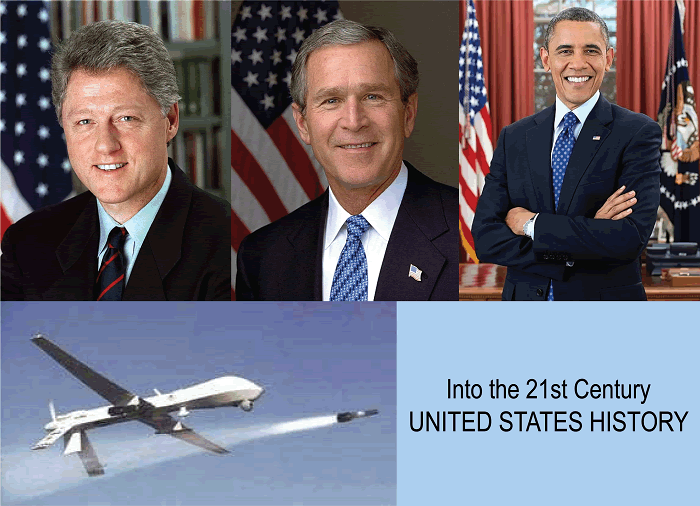These summaries capture some of the key events and policy initiatives during the presidencies of Bill Clinton, George W. Bush, and Barack Obama, each of whom had a distinct impact on the nation during their time in office.
 Bill Clinton (1993-2001)
Bill Clinton (1993-2001)
- Economic Prosperity: The Clinton presidency was marked by a period of sustained economic growth and a budget surplus. His administration focused on fiscal responsibility and enacted policies that contributed to economic prosperity.
- Welfare Reform: Clinton signed the Personal Responsibility and Work Opportunity Reconciliation Act in 1996, which significantly reformed the welfare system, imposing work requirements and time limits on assistance.
- Healthcare Reform: Clinton's efforts to reform the healthcare system faced significant challenges and did not result in comprehensive reform. However, the State Children's Health Insurance Program (SCHIP) was established during his presidency.
- Foreign Policy: His administration played a role in the Dayton Agreement, which ended the Bosnian War, and he faced foreign policy challenges such as the Rwandan genocide and the conflict in Kosovo.
- Impeachment: Clinton was impeached by the House of Representatives in 1998 on charges of perjury and obstruction of justice related to the Monica Lewinsky scandal but was acquitted by the Senate and completed his second term.
George W. Bush (2001-2009)
- 9/11 and War on Terror: Bush's presidency was defined by the terrorist attacks of September 11, 2001. He launched the War on Terror, leading to the invasions of Afghanistan (2001) and Iraq (2003) to combat terrorism and remove Saddam Hussein from power.
- Domestic Policy: Bush enacted tax cuts, including the Economic Growth and Tax Relief Reconciliation Act of 2001, and pursued education reform with the No Child Left Behind Act.
- Financial Crisis: The latter part of Bush's presidency saw the global financial crisis of 2008, leading to the Troubled Asset Relief Program (TARP) to stabilize the financial sector.
- Controversies and Criticisms: His presidency faced criticism for the handling of Hurricane Katrina, allegations of torture in detention facilities, and the absence of weapons of mass destruction in Iraq, which were cited as a primary reason for the invasion.
Barack Obama (2009-2017)
- Historic Election: Barack Obama made history as the first African American president of the United States. He was elected in 2008 on a platform of hope and change.
- Affordable Care Act (Obamacare): One of the signature achievements of his presidency was the passage of the Affordable Care Act in 2010, which aimed to expand healthcare coverage and implement healthcare reforms.
- Economic Recovery: Obama inherited the Great Recession and implemented the American Recovery and Reinvestment Act of 2009 to stimulate economic recovery. Under his administration, the economy slowly improved.
- Foreign Policy: Obama withdrew U.S. troops from Iraq and escalated the war in Afghanistan. He also played a key role in the negotiation of the Iran Nuclear Deal.
- Immigration Reform: Efforts to reform immigration laws, including the Deferred Action for Childhood Arrivals (DACA) program, were significant aspects of his domestic policy.
- Climate Change: Obama made efforts to address climate change, including the Clean Power Plan and the Paris Agreement.
- Foreign Policy Challenges: His administration faced challenges such as the rise of ISIS, the Syrian civil war, and Russia's annexation of Crimea.
- Polarization: Obama's presidency witnessed increasing political polarization in the United States, with partisan divides often hindering legislative progress.
|
 Bill Clinton (1993-2001)
Bill Clinton (1993-2001)







